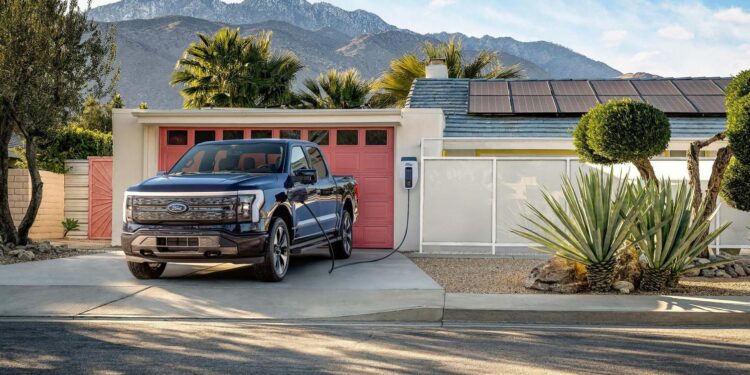Redwood Materials, a battery recycler created by Tesla cofounder and former tech chief JB Straubel, plans to collect used electric and hybrid vehicle packs from Ford and Volvo Cars in California, the top U.S. market for clean autos, as it builds a business based on making rechargeable cars and trucks more sustainable by reusing valuable mined materials they use.
Redwood launched a software portal today for California auto dealers and dismantlers in the first-of-its-kind program to identify battery packs reaching their initial end of life and arrange shipment to recycling facilities in Carson City, Nevada, where the company is headquartered. There it will extract valuable lithium, cobalt, nickel and other elements that are mainly mined abroad, and prepare them to be used again to make new lithium-ion cells at U.S. plants. This kind of closed-loop recycling and reuse is necessary to ensure the sustainability and affordability of electric vehicles, according to Straubel.
“By recycling these batteries we’ll recover the valuable, critical materials inside and keep those materials directly in the supply chain loop,” he said in a video presentation. “This immediately reduces the need for more mining and the import of these same components.”
Redwood aims to become a leading supplier of recycled metals and materials and estimates it can already recover about 6-gigawatt-hours of used batteries, battery scrap and electronics annually, enough to supply battery packs for 60,000 EVs. Located near Tesla’s massive Gigafactory, where it collects scrap from Panasonic, Redwood has raised about $800 million to expand its operations as demand for EV batteries–and the costly commodities needed to make them–grows. It’s also planning to build a $1 billion U.S. plant to make “precision” battery materials from recycled elements that it will supply to makers of lithium-ion cells.
California is by far the biggest market for electric vehicles in the U.S., buying about 247,000 battery-electric and plug-in hybrid vehicles in 2021, according to the California Energy Commission. That’s about 40% of all such vehicles sold in the country last year. Cumulative sales of rechargeable autos in the most populous U.S. top 1 million units, and Governor Gavin Newsom set a goal of phasing out sales of new gasoline and diesel models in the state starting in 2035.
“EV batteries contain the minerals that are crucial to our low-carbon, green growth future including lithium, which is critical to batteries as we move towards that clean energy future,” Newsom said in a briefing. “The pilot programs announced today will show how California can lead and build systems that work in partnership with industry leaders and innovators.”
The state is not providing funding for the program though Redwood is working with agencies including Cal EPA to streamline collection of spent battery packs, Straubel said. Costs for the program, primarily shipping costs, are being shared between Redwood, Ford and Volvo, though the closely held company isn’t providing specific figures.
Volume will likely be low initially and begin to grow in about two years when a significant number of electric vehicle batteries begin to reach their expected end of life, he said.
(For more on JB Straubel and Redwood Materials, see “Tesla Tech Whiz Is Mining Riches From Your Old Batteries.”)
Ford previously announced plans to work with Redwood on recycling its batteries, and invested $50 million in the company in September 2021. CEO Jim Farley has announced plans to aggressively ramp up EV production by the automaker, focusing on higher output of Mustang Mach-E crossovers and the new Ford F-150 Lightning pickup this year.
“We take our commitment to do our part to protect people and the environment very seriously,” Farley said. “This new program with Redwood materials will help us lead America’s transition to sustainability and carbon-neutral EV manufacturing.”
Volvo Cars has a corporate goal of being climate neutral by 2040 and selling only electric vehicles by the end of the decade. “This is why we are excited about Redwood Materials’ forward-thinking solutions for end-of-life battery packs to be collected, recycled and remanufactured,” said Anders Gustafsson, president and CEO of the carmaker’s U.S. unit. “California is the right place to start such a program.”
While Ford and Volvo Cars are the initial automakers participating in the California recycling program though Redwood says it’s encouraging other manufacturers to join. It will also continue to expand collection of all types of lithium-ion and nickel-metal hydride batteries, including non-automotive grade, across the state.











